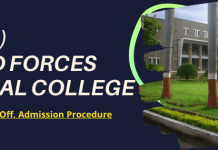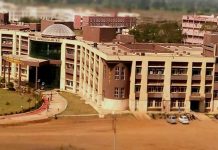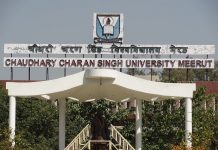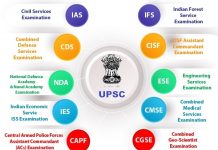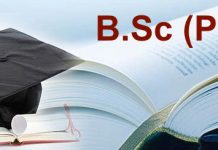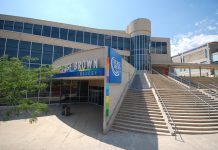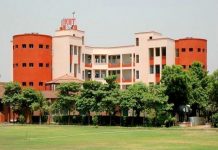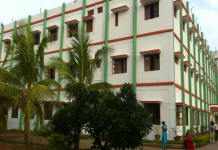Baba Isher Singh College of Pharmacy (BISCP), located at VPO GAGRA, Moga is one of the most popular college in India, established in 1994 year. The college is approved by the AICTE, New Delhi, PCI and Punjab Government and is affiliated to Punjab Technical University, Jalandhar and by UCG(University Grants Commission).
The visualization of the college is to train the students to assemble the fast challenges of globalization. BIS stands to ignite the students intellectually and morally in the direction of their vision, to provide a conductive and rewarding environment faculty and to help them come forward as better citizens of tomorrow so that their individuality is known with the difference.
BISCP provides courses like Diploma, Bachelor and Masters in Pharmacy. Also, the college has best teaching staff.
What is Pharmacy?
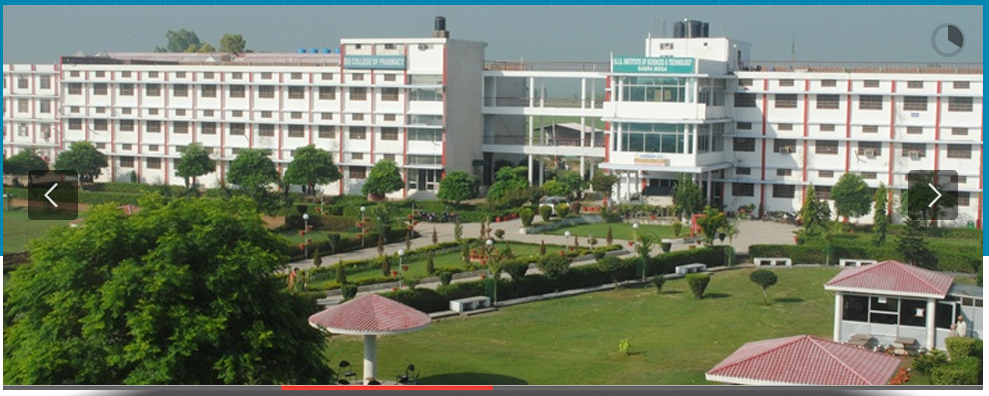
It links health science to medical science with chemistry and it is charged with the discovery, creation, disposal, secure and effective use, and control of medications and drugs. The practice requires outstanding information of drugs, their mechanism of action, side effects, interactions, mobility and toxicity, treatment and understanding of the pathological process. Some specialties of pharmacists, is clinical pharmacists, require other skills, that includes knowledge about the possession and evaluation of physical and laboratory data. Also Check Types of Nursing Programs .
The career opportunities includes more traditional roles like compounding and dispensing of medications, and it also includes modern services related to health care, plus clinical services, reviewing medications for safety and efficacy, and providing drug information. Pharmacists are the experts who have command on drug treatment and they are the primary health professionals who optimize the use of medication for the benefit of the patients.
An organization in which pharmacy is practiced (in the first sense) is called a pharmacy ( more common term in the United States) or a chemist’s (more common in Great Britain, however pharmacy is also used).
BISCP Eligibility Criteria:
- A minimum aggregate of 50% in 10th class and aggregate of 50% in 12th class or its equivalent.
- A candidate must have passed his/ her 10+2 with Physics and Chemistry as compulsory subjects plus Maths or Biology as one of the optional subjects
- Student must have secure 50% overall aggregate in all the subjects.
- It is mandatory for the candidate to have a pass grade in each subject of qualifying examination.
BISCP Facilities:
- This College has world class infrastructure for the advancement of the students.
- It has fully furnished separate hostels for boys and girls with all the necessary facilities within the campus.
- Institute provides library with varied range of books and periodicals.
- It provides high speed internet facility(WIFI) with highly advanced computer in the computer lab.
- A highly hygienic Cafeteria which includes fast food, Italian, Indian food ,etc.
- Transportation Facilities and Sports centre.
- Herbal Garden for natural beauty
- Fully equipped labs
BISCP Ranking and Reputation:
| Institute Name | Baba Isher Singh College of Pharmacy Moga |
| Rating | 4.3 |
| Faculty | Excellent |
| Education | 4.3 |
| Reputation | Excellent |
| Infrastructure | Good |
BISCP Courses:
- B Pharm (4 year)
- M Pharm(2 year)
- D Pharm(2 year)
Also Check B Pharma Vs D Pharma
Documents Required for Admission:
- Result Card of Entrance Exam
- Marksheet of 12th class
- Medical Certificate
- Caste Certificate
- Domicile/Affidavit/ Resident Certificate
- Passport Size Photograph
- Identity (Aadhar Card and Pan Card)
BISCP Admission Process:
| Course | Admission Process |
| D Pharma (Diploma) | Most institutes offer this course acc. To the performance in related entrance exam held by the college, followed by personal interview, where their general ability for the course is tested.Some institutes also provide direct admission based on candidates performance in 12th class. |
| B.Pharma(UG) | A candidate must have passed his/ her 10+2 with Physics and Chemistry plus Maths / Biology.Should have 50% overall aggregate in all the subjects.Candidates, pass the 3-year(D.Pharma) also eligible. |
| M.Pharma(PG) | The admission may vary from one place to another.Many colleges take candidates on the basis of marks scored in GPAT.After that, candidates have to undergo energetic counselling and personal interview.Some institutes select candidates on basis of merit that is , marks obtained in one’s bachelor’s degree in same field.Also, some colleges conduct private entrance exams for the recruitment. |
Roles and Responsibilities of the Pharmacists:
The pharmacist plays an important role in helping patient and cure them as soon as possible especially current epidemic (COVID-19) condition:
- Provide prescribed meds to the patient
- Availability of drugs/meds
- Check that the patient is taking the right dose or not
- Working as a doctor and provide meds to the poor
Career Opportunity:
Pharmaceutical sector is one of the wide range of career opportunity sector and fastest growing sector all across the world.
- Research and Development
- Sales and Marketing
- Quality Control / Quality Assurance
- Medical
- Teaching
Job Requitement Companies:
- Lupin Ltd
- Escort Heart Institute and Research Centre
- HCL
- Ranbaxy Laboratories Ltd
- ZANEKA Drugs
- Intas Pharmacists
- Bio Science
B. Pharmacy Syllabus
List of subjects and syllabus which are frequently covered in B Pharmacy prospectus.
Also Check Role of Indian Nursing Council
B.Pharmacy Theory Subjects
Table given below mentions the theoretical subjects that includes the syllabus of B Pharmacy subjects.
| Semester I | Semester II |
| General and Dispensing Pharmacy | Unit Operations |
| Pharmaceutical Analysis-I | Organic Chemistry |
| Inorganic Medicinal Chemistry | Computer Applications |
| Remedial Maths and Biology | Human Anatomy Physiology |
| Mathematics and Statistics | Human Anatomy Pathophysiology |
| Semester III | Semester 1V |
| Physical Pharmaceutics | Cosmeticology |
| Heterocyclic and Natural Products Chemistry | Pharmacology-I |
| Biochemistry | Microbiology and Immunology |
| Natural Products and Pharmacognosy | Natural Products and Pharmacognosy |
| Semester V | Semester VI |
| Pharmaceutics-V (Biological Pharmacy) | Pharmaceutics-VI (Pharmaceutical Technology 1) |
| Medicinal Chemistry-I | Pharmacology-II |
| Pharmacognosy and Natural Products-III | Hospital Pharmacy |
| Industrial Management and Pharmaceutical Marketing | Pharmaceutical Analysis-II |
| Pharmaceutical Technology 2 | Biopharmaceutics and Pharmacokinetics |
| Pharmacology-III | Pharmacology-IV |
| Medicinal Chemistry-II | Pharmaceutical Analysis-III |
| Genetics and Biotechnology, Molecular Biology | Forensic Pharmacy |
B.Pharmacy Practical Labs
Given below are the practical labs which students utilize during their course of B Pharmacy.
| Semester I | Semester II |
| Lab-I (General and Dispensing Pharmacy) | Lab-II (Unit Operations) |
| Remedial Biology Laboratory | Organic Chemistry Laboratory |
| Semester III | Semester IV |
| Natural Products Lab and Pharmacognosy | Microbiology and Immunology Lab |
| Lab-III (Physical Pharmaceutics) | Lab-IV (Cosmeticology) |
| Biochemistry Laboratory | Pharmacology Lab-I |
| Semester V | Semester VI |
| Lab-V (Biological Pharmacy) | Lab-VI (Pharmaceutical Technology 1) |
| Medicinal Chemistry Lab | Pharmacology Lab-II |
| Semester VII | Semester VIII |
| Molecular Biology, Genetics and Biotechnology Lab | Natural Products Lab and Pharmacognosy |
| Pharmaceutical Technology 2 | Bio pharmaceutics and Pharmacokinetics |
| Pharmacology Lab-III | Pharmaceutical Analysis Lab |
M Pharmacy Syllabus
The course curriculum of MPharm is considered by keeping in mind the latest trends and weight of the industry by enhancing information and skills of students regarding pharmacy to facilitate them having a prosperous career as pharmacists.
The core course delivery methods include classroom, teaching, live assignments, workshops, lab work, hands-on practical training, etc. Apart from this, students are required to propose a master degree dissertation after completing their course. This program comprises core courses, electives and lab practical.
| Drug Regulatory Affairs | New Drug Application (NDA), Abbreviated New Drug Application (ANDA, Material Safety Data Sheet (MSDS) Investigational New Drug Application (INDA), preparation and Industrial Safety & Health | This paper mainly focuses on integrating facts of functional areas of various regulatory affairs and drug regulation. |
| Pharmaceutics | Preformulation Studies, Kinetic Principles and Stability Testing, Excipients, Polymer Science, Diffusion & Dissolution, Optimization Techniques, Quality Control | This paper aims at equipping the students with the essential knowledge and topics revolving around advanced pharmaceutics. |
| Biological Evaluation | Principles of Pharmacological and Pre-clinical Evaluation of drugs, Bioassays, Modern Methods of Pharmacological, Alternatives to animal screening procedures, | The aim of this paper is to convey the basic facts of biological assessment involved in pharmaceutical science. |
| Product Development & Formulation | Fundamental Aspects of Product Development, Pilot Plant Scale-up Techniques, Development of Parenterals, Ophthalmic Preparation, Suppositories, Dermatological Preparations | The purpose of this paper is to acquaint the students with unusual aspects of product development and formulation. |
| Novel Drug Delivery Systems | Oral drug delivery, Parenteral controlled release system, Mucosal drug delivery models, Fundamentals of controlled release drug delivery systems, Ocular Drug Delivery, Regulatory consideration in controlled release | The main aim of this paper is to teach the fundamentals of novel drug delivery systems. |
| Bio pharmaceutics & Pharmacokinetics | Absorption of drugs, Distribution of drugs, Elimination of drug, Bioavailability and bioequivalence, Pharmacokinetics, Non linear pharmacokinetics | This paper provides an insight into bio pharmaceutics and pharmacokinetics required at master level. |
D.Pharmacy Syllabus
Subjects for Year I is given below:
| Topics | Description |
| Pharmaceutics I | Introduction to different dosage forms |
| Metrology | |
| Packaging of pharmaceuticals | |
| Size separation by Shifting | |
| Clarification and Filtration | |
| Pharmaceutical Chemistry 1 | Acids, Bases and Buffers |
| Antioxidants | |
| Gastrointestinal Agents | |
| Topical Agents | |
| Dental Products | |
| Definition, History and Scope | |
| Pharmaceutical Aids | |
| Different systems of Classification of Drugs and Natural Origin | |
| Adulteration and drug evaluation | |
| Biochemistry Clinical Pathology | Introduction to Biochemistry |
| Carbohydrates | |
| Lipids | |
| Vitamins | |
| Enzymes | |
| Therapeutics | |
| Human Anatomy Physiology | Scope of Anatomy and Physiology |
| Elementary Tissues | |
| Skeletal Systems | |
| Cardiovascular Systems | |
| Respiratory Systems | |
| Muscular Systems | |
| Health Education Community Pharmacy | Concept of Health |
| Nutrition and Health | |
| First Aid | |
| Environment and Health | |
| Fundamental Principles of Microbiology | |
| Communicable Diseases |
Baba Isher Singh College of Pharmacy Subjects for Year II are given below: Also Check Why We Do Nursing Course .
| Topic | Description |
| Pharmaceutics 2 | Reading and Understanding Prescriptions |
| Study of Various types of Incompatibilities | |
| Posology | |
| Dispensed Medications | |
| Types of Powders | |
| Lipids and Dosage forms | |
| Pharmaceutical Chemistry 2 | Intro. to Nomenclature of Organic Chemical Systems |
| Antiseptics and Disinfectants | |
| Antileprotic Drugs | |
| Antibiotics | |
| Hypnotics | |
| Pharmacology and Toxicology | Introduction to Pharmacology |
| Scope of Pharmacology | |
| Drugs: Their Advantages and Disadvantages | |
| General Mechanism of Drug Action | |
| Acting of Drugs on the Central Nervous System | |
| Pharmaceutical Jurisprudence | Origin and Nature of Pharmaceutical Legislation in India |
| Principles and Significance of Professional Ethics | |
| Pharmacy Act, 1948 | |
| The Drugs and Cosmetics Act, 1940 | |
| The Drugs and Magic Remedies Act, 1954 | |
| Drug Store Business Management | Introduction |
| Drug House Management | |
| Sales | |
| Recruitment and Training | |
| Banking and Finance | |
| Introduction to Accounting | |
| Hospital Clinical Pharmacy | Classification, Function Classification of Hospitals |
| Hospital Pharmacy | |
| The Drug Distribution System in the Hospital | |
| Manufacturing | |
| Drug Information Service | |
| Introduction to Clinical Pharmacy | |
| Modern Dispensing Aspects |
Hope Everything is Explained related to Baba Isher Singh College of Pharmacy . Check More Details on Education in India Website .













